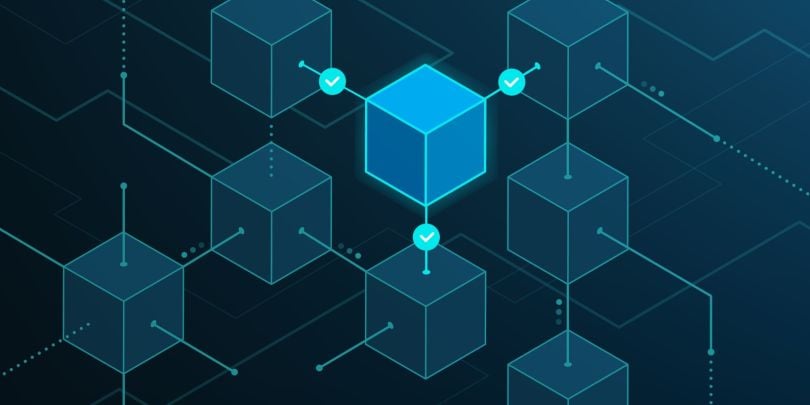Enterprise Use Cases for Blockchain: How to Look Cool Using Buzzwords and Solve Real Problems

MontaF - Sept. 13, 2024

Ah, blockchain—the magical technology that everyone keeps talking about at tech conferences, even though half the people there aren't quite sure how it works. Some say it’s the future, some say it’s just a fancy database, and some… well, they just nod and pretend to understand.
But you, brave reader, are here to truly grasp the power of blockchain (or at least laugh while we explain it). So, grab your coffee and let’s dive into the enterprise use cases for blockchain—because, yes, it’s more than just cryptocurrencies and meme tokens. 🧑💻🚀
1. Supply Chain Management: Tracking Stuff Like a Boss
Picture this: You order a fancy new gadget from a company. They say it’s “on the way,” but somehow, after two weeks, your precious package is chilling somewhere in Antarctica. Enter blockchain!
How It Works:
Blockchain brings transparency and trust to the supply chain by making sure everyone (from the manufacturer to the delivery guy) knows exactly where the product is and where it’s been. It’s like giving every item its own personal GPS tracking system, but way cooler (and nerdier).
Example: Walmart uses blockchain to track mangoes. Yes, mangoes. 🍋
Instead of 7 days of “Where are my mangoes?!” panic, Walmart can trace the exact farm and route the fruit took to reach the store in 2.2 seconds. Mangoes, people. We’re living in the future.
2. Finance & Banking: No More Waiting 3-5 Business Days for Your Money
Remember the last time you tried to transfer money, and it felt like you were mailing a check in the 1800s? That’s because traditional banking systems are slow, bureaucratic, and sometimes require blood sacrifice (not really, but close). Blockchain to the rescue! 🚀
How It Works:
With blockchain, banks can process transactions faster, more securely, and without a zillion middlemen taking their sweet time. Cross-border payments that used to take forever can now happen in minutes. Blockchain is like sending money on a spaceship instead of a snail.
Example: JPMorgan created its own blockchain called Quorum to make banking feel a little less like waiting in line at the DMV. Their goal? Instant transactions, baby! 💰💸
3. Smart Contracts: Legal Stuff That’s… Smart?
We’ve all dealt with contracts—those long, boring documents that you sign without actually reading. What if I told you there’s a way to make contracts automatic and error-proof? Yep, smart contracts on the blockchain!
How It Works:
A smart contract is like a digital agreement that automatically executes when certain conditions are met. No more arguing about who owes what, or when you’ll get paid—it’s all handled by code. It's like having a lawyer, but instead of charging you $500/hour, they work for free and don’t drink coffee.
Example: Imagine renting an apartment using blockchain. The smart contract would automatically transfer the rent to the landlord when both sides confirm that everything’s good. No awkward conversations, no lost checks—just seamless transactions. 🏡💼
4. Healthcare: Keeping Your Medical Records in One Place (Finally)
Raise your hand if you’ve ever been to the doctor, and they asked you for the same information you already gave them ten times. 🙋♂️ That’s because healthcare records are scattered across different systems, like socks in a dryer. Blockchain can fix that.
How It Works:
Blockchain allows your medical records to be stored securely in one place, accessible to the right people, and protected from hackers. It’s like a super-secure digital vault where all your healthcare info lives, but without the “I forgot my password” drama.
Example: Estonia (the country!) has already implemented blockchain for its national healthcare system, meaning every citizen has instant access to their records, and doctors aren’t drowning in paperwork. Estonia: 1, Paperwork: 0. 🏥
5. Real Estate: Buying a House Without Crying (Hopefully)
Buying property can feel like you're signing your life away. Endless paperwork, shady middlemen, and more signatures than you’ve ever used in your entire life.
But guess what? Blockchain can streamline the real estate process, too!
How It Works:
With blockchain, buying or selling property can happen with fewer intermediaries, less paperwork, and more transparency. Everything from contracts to land ownership records can be stored securely and immutably on the blockchain, meaning no more “Oops, we lost your document.”
Example: Countries like Sweden are already using blockchain to record property transactions. Now you can transfer property ownership with the click of a button. (Okay, maybe a few buttons. Let’s not get carried away.)
6. Voting: Because Counting Ballots Shouldn’t Feel Like Rocket Science
Raise your hand again if you've ever seen an election result get contested because of "irregularities". 🙋♀️ Blockchain voting could fix that, ensuring elections are fair, transparent, and way less dramatic.
How It Works:
With blockchain, every vote is recorded, verified, and stored securely. No more paper ballots that look like your dog chewed them up, no more counting errors, and best of all—no room for tampering. 🗳️✨
Example: West Virginia ran a pilot program allowing overseas voters to cast their ballots via blockchain in 2018. And you thought West Virginia was only famous for country roads! 🌄
7. Intellectual Property: Protecting Your Genius Ideas
You’ve just come up with a brilliant idea—a talking fridge that can order pizza. Genius! But how do you make sure no one steals your idea? Blockchain can help by protecting your intellectual property (IP) in a way that even your smartest friend can’t hack.
How It Works:
With blockchain, you can prove ownership of creative works—whether it’s art, music, or your revolutionary pizza-ordering fridge idea. Every timestamped block on the chain serves as undeniable proof that you were the original creator.
Example: Platforms like KodakOne are using blockchain to protect photographers’ work, ensuring that they get paid for every photo used, no matter where it ends up on the internet. 📸
8. Energy Trading: Trading Electricity Like It’s Pokémon Cards
Here’s a fun one: Imagine your house generates extra solar power, and instead of letting it go to waste, you sell it to your neighbors like a modern-day energy tycoon. Blockchain makes peer-to-peer energy trading possible.
How It Works:
Blockchain allows energy producers (like you, with your fancy solar panels) to trade surplus energy directly with consumers, without the need for big utility companies. It’s like a neighborhood swap meet, but with electricity instead of old baseball cards.
Example: Power Ledger, an Australian company, uses blockchain to enable energy trading between consumers, ensuring that no watt of power goes to waste. 🌞⚡
Conclusion: Blockchain Isn’t Just for Bitcoin Anymore
There you have it: Blockchain in the enterprise world is like having a Swiss Army knife that can solve a whole range of problems. From supply chain transparency to making sure your medical records don’t get lost in the Bermuda Triangle of hospital databases, blockchain is quietly revolutionizing industries—and yes, it makes you sound really cool at parties.
So next time someone says, “Blockchain is just a fad,” you can confidently laugh and explain how it’s improving everything from mangoes to elections. 🍋🗳️
Got more blockchain buzzwords to throw around? Drop them in the comments, and let’s geek out together!


